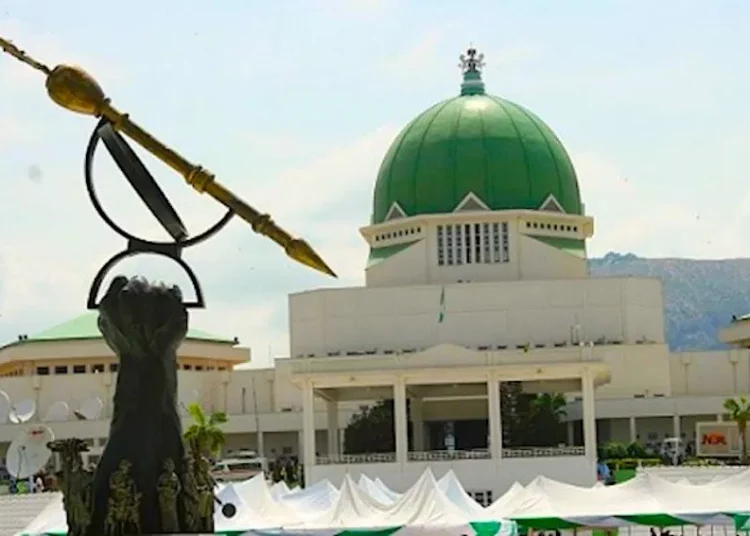With the emergence of presiding officers of the 10th National Assembly, it will fit and proper to assume that the kind of politics that dominated the public space as to who becomes what in the legislative chambers should be over. In its place should be serious legislative work in terms of making laws for good governance to lighten the burden Nigerians bear.
While the politicking lasted, Nigerians were inundated with reports of campaigning and deals by the lawmakers which culminated in the emergence of Senator Godswill Akpabio and Sen Barau Jibrin as Senate President and Deputy respectively, as well as Hon Tajudeen Abbas and Hon Benjamin Kalu, Speaker and deputy Speaker for the House of Representatives.
What is clear is that President Bola Ahmed Tinubu and the ruling All Progressives Congress (APC) had their way in the kind of National Assembly leadership they desire. Their candidates won. The opposition lawmakers did not cause any upsets unlike in the Sen Abubakar Bukola Saraki and Hon Yakubu Dogara era.
The expectation, henceforth, is that post-election rancour in the two chambers will be less. If that is a correct reading of the barometer, then, there may not be any excuses for poor performance on that score. Indeed, this newspaper had cautioned during the leadership scramble for the National Assembly leadership, that the lawmakers cannot afford to lose sight of the big picture.
The social, political and economic realities in today’s Nigeria is a sorry tale. The statistics tell it all. To put the situation in context, data obtained from the Nigeria Security Tracker (NST), a project of the Council on Foreign Relations’ Africa programme, revealed that 63,111 were killed since May 29, 2015. The deaths were caused by terrorism, banditry, Herders/farmers clashes, communal crises, cult clashes, and extra-judicial killings among others which have intensified in the recent weeks.
Last year, Nigeria’s Debt Management Office (DMO) disclosed that this next administration will inherit a public debt of N77 trillion if the N23 trillion loans from the Central Bank of Nigeria (CBN) are secured. The multinational consulting firm, KPMG revealed that the Nigerian unemployment rate rose to 37.7per cent in 2022. It believes the figure will further rise to 40.6per cent, due to the continuing inflow of job seekers into the job market.
Recent poverty figures are equally not palatable. Poverty Index survey reveals that 63 per cent of persons living within Nigeria (133 million people) are multidimensionally poor. Child poverty is prevalent in rural areas, with almost 90 per cent of rural children experiencing poverty.
The education and health sectors are near skeletal, crippled by incessant strikes. The Academic Staff Union of University (ASUU) had gone on strike for over 610 days since the 2015. Other unions within the tertiary institutions have also gone on long periods of strike at different intervals. Incessant strikes by doctors and other health workers federal government-owned hospitals resulted in the loss of more than 153 working days between 2015 and 2023.
Human capital flight to foreign countries has become a pattern in the face of Nigeria’s failing system. Interestingly, in the opinion of this newspaper, the hardship Nigerians deal with on a daily basis was compounded by the recent subsidy removal even as they await the provision of palliatives to cushion the biting effect.
However, it is a good thing that President Tinubu has underscored the urgency to provide quality governance and the two leaders of the National Assembly echoed the same intent in different words.
But it is important to observe that rhetoric alone won’t cut it. Evidential governance is all Nigerians need. Patriotic sacrifice would be looked out for. It’s sad enough that the Red Chamber has been described as a retirement home for former governors, while the Green Chamber is seen as a gathering of hotheaded young men fired up by a desire to get their share of the national cake.
By our reckoning, the entire process leading to the emergence of the leadership seems tilted more towards parochial interests rather than overall interest of Nigeria.
We hope that this Assembly will do enough to convince Nigerians that this is not so. In an era where Nigerians would be required to make sacrifices, it will be highly insensitive to have lawmakers continue to enjoy the excesses of office with little value as we have seen in recent years. Indeed, such poor performance accentuates the agitation for a part-time unicameral legislature which seems appropriate in light of our current financial realities.
The flimsy bills and motions, absenteeism, and sleeping during plenary should stop. With the lawmakers’ oversight function on the executive now increasingly perceived as a blackmail tool rather than checking the excesses of the other arm of government, it will be a pleasant surprise if this Assembly refuses to give fillip to such perception.
Overall, it will be pleasantly shocking if this National Assembly does not become a rubber stamp to the executive going by the way its leadership emerged. It will be interesting to see what the legislative agenda of this National Assembly will be in the coming days.
What is clear, in our considered opinion, is that history will be unkind to this National Assembly if it follows in the footsteps of others before it, and fail to live up to the expectations of Nigerians.






